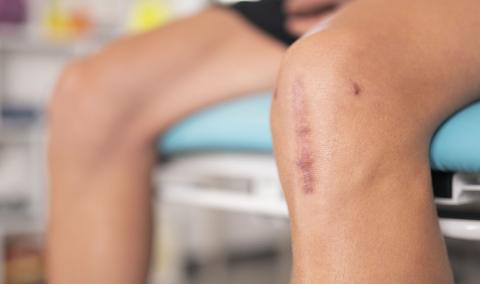If you believe ureteropelvic junction (UPJ) obstruction may be affecting your kidney function or causing symptoms, or you’ve already received a diagnosis, MU Health Care provides expert care and treatment options that can help.
UPJ obstruction happens when there’s a blockage where the kidney connects to the ureter. This can slow or block urine flow to the bladder, leading to swelling, pain or reduced kidney function.
The right care can help protect your kidney function and prevent long-term damage. With early diagnosis and personalized treatment, you can get much-needed symptom relief and avoid future complications.
Symptoms of UPJ Obstruction
Symptoms of UPJ obstruction can look different depending on your age and how severe the blockage is. It might be present at birth or develop later in life.
Common symptoms include:
- Abdominal lump: In some cases, especially in infants, you might feel a mass in the belly.
- Blood in urine: You might see blood when you pee, or it may be detected in a lab test.
- Frequent UTIs: Repeated infections can cause fever, pain with urination or cloudy urine.
- High blood pressure: Kidney issues may lead to elevated blood pressure over time.
- Hydronephrosis: Backed-up urine can swell the kidneys and lead to lasting damage if untreated.
- Kidney stones: Blocked urine flow can lead to the development of stones, causing pain or blood in the urine.
- Less urine: In severe cases, you may notice a drop in how much urine you produce.
- Nausea or vomiting: These symptoms can happen if the kidney becomes swollen.
- Side or back pain: You might feel a dull ache or sharp pain on one side, especially after drinking fluids.
When to Seek Care for UPJ Obstruction
If you’re dealing with side pain, frequent infections or other changes in urination, schedule an appointment with a urologist or your primary care doctor, who can then refer you to a urologist. Catching UPJ obstruction early can help protect your kidneys, relieve symptoms and prevent or minimize long-term damage.
Causes of UPJ Obstruction
UPJ obstruction can be present at birth or develop later in life. Understanding the cause can help guide the right treatment.
Congenital Causes of UPJ
- Extra blood vessels: Additional vessels near the kidney can press on the ureter and block urine flow.
- Fibrous tissue bands: These bands can wrap around the ureter and cause a blockage.
- Narrow ureter: Some people are born with a section of the ureter that’s too tight or doesn’t drain well.
Acquired Causes of UPJ
- Chronic inflammation: Recurring infections or other conditions can lead to long-term swelling and narrowing.
- Kidney stones: Large stones can get stuck near the junction and cause swelling.
- Scar tissue: Injury, infection or past surgeries can lead to scarring that blocks the ureter.
- Tumors: Growths in or around the kidneys may press on the ureter.
How We Diagnose UPJ Obstruction
At MU Health Care, we’ll take a close look at your symptoms and medical history to understand what’s causing the blockage and how it’s affecting your kidneys.
We may use several tools to help with diagnosis, including:
- Ultrasound to check for kidney swelling or signs of backed-up urine.
- CT scan or MRI to get detailed images of the urinary tract.
- Nuclear medicine scan (MAG3 or DTPA) to measure kidney function and how well urine is draining.
How We Treat UPJ Obstruction
Treatment starts with understanding how the obstruction is affecting your kidney function and daily life. From there, we’ll walk you through your options and create a personalized care plan.
Nonsurgical Treatment Options for UPJ Obstruction
Depending on the severity of your condition, treatment for UPJ obstruction may include:
- Endoscopic procedures: Minimally invasive techniques can remove small blockages and improve urine flow.
- Lifestyle guidance: We can help you protect your kidney health with hydration, nutrition and follow-up care.
- Observation: In mild cases, we may monitor the obstruction with regular imaging and symptom checks.
Surgical Treatment Options for UPJ Obstruction
If the blockage is more severe or doesn’t improve with other treatment, we may recommend surgery. For example, one of the most effective options for UPJ obstruction is pyeloplasty.
Pyeloplasty is a reconstructive procedure that treats significant UPJ obstruction. It typically involves:
- Removing the blocked section of the ureter.
- Reconnecting the healthy part to restore normal drainage.
Depending on your anatomy and treatment, this procedure can be done with open, laparoscopic or robotic techniques.
Recovery and Support After UPJ Obstruction Treatment
Recovery varies depending on your treatment, but may include:
- Follow-up visits to monitor healing and kidney function.
- Guidance on hydration, diet and long-term kidney health can help maintain results and prevent complications.
- Imaging tests to confirm success and prevent future issues.
Begin Your Personalized UPJ Obstruction Treatment Plan
UPJ obstruction can affect kidney function, comfort and overall health, but it’s treatable with the right care.
At MU Health Care, our team brings together advanced diagnostics, leading-edge technology and specialized expertise to deliver all the care you need in one place.
We’ll take time to understand what’s causing the blockage and create a personalized treatment plan that supports your health now and in the future.



























